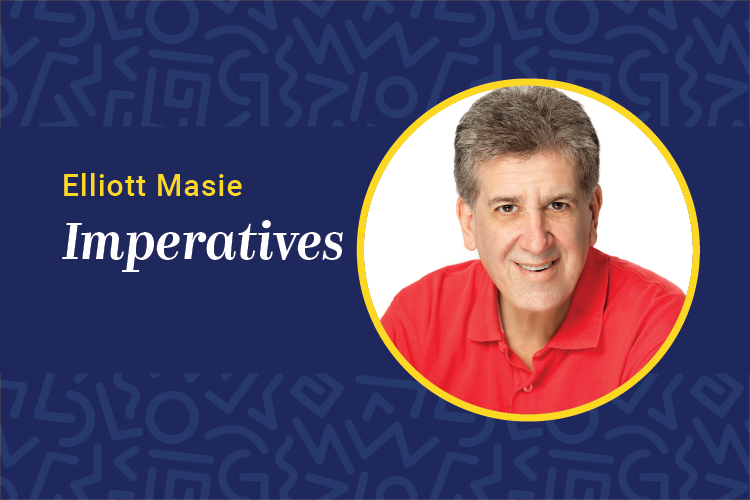
Congratulations! You hold a senior learning leader position in the middle of your career. Now, you are managing a major function in the learning department, driving learning strategy or maybe have been promoted to a chief learning officer role (with or without the official title). Well done.
So what does the next half of your career look like? And what are the natural development steps for learning leaders in the middle of their careers?
Normally we are the ones giving coaching and career advice to colleagues in the workplace. Let me turn the tables and give you a summary of the advice and career options I share with your equivalent mid-career learning leaders.
Go wider and larger. This is the natural route for the second half of a learning career. Become the CLO or chief talent officer of your company. The average duration at the top in learning is less than four years, so there will always be opportunities to go wider or switch to a different team.
Take a stretch assignment. As a C-level officer in your company, take an assignment lasting several months to a year outside of learning or HR. A rising learning leader from a large automobile company asked for and received a one-year role as assistant plant manager in Brazil. She blossomed and expanded her skill set, moving on to other senior manufacturing roles at headquarters.
Add an academic credential. Being a CLO or VP of learning is an amazing accomplishment on your résumé. Now consider adding an academic credential. More than 100 senior learning leaders have pursued doctoral degrees at Penn, Columbia and other institutions. Others have added nonlearning degrees like an executive MBA. Others have participated in an executive development program in strategy or user experience.
Join a board of directors. Get involved with a corporate or nonprofit organization’s board. They will value your talent and learning experience and it will give you a unique role in shaping an organization without being a manager. The networking opportunity is immense and future resources for your next career move are plentiful.
Map and validate your skills. Build a visual map of your skills, defining the mixture of learning, management, industry and interpersonal competencies. Share this with colleagues and friends inside and outside your organization. Ask them for feedback on your map including gaps or elements you did not include.
Take a look at global opportunities. If your lifestyle and family situation allows, consider a global opportunity. The future of business lies in the global marketplace. Reach for a learning role that either locates you internationally or has you deeply engaged in other regions. Add or improve a second or third language.
Develop technology and innovation fluency. How deeply do you explore evolving technologies, methodologies and innovations? The world of business and learning has already changed radically in the first part of your career. Strap on your seat belt for more change in the next few decades. Immerse yourself as a learner and experimenter. Learn to code, find tech mentors, coach a high school robotics team, study cognitive and brain science changes or visit a tech startup venture.
Face it: You will always have learning in your DNA. Every role you hold in the future will draw upon your experiences and competencies as a learning leader. Now you must decide if you want the balance of your career to be in the learning field or if you are ready for a career change that will be quite different but that uses your people development skills every day.
We are still waiting for the first Fortune 500 CLO to be promoted to CEO. There are several people in our industry I am betting on to make this career change. It is just one of many career choices.
Again, congrats on your success. But as my friend Marshall Goldsmith says, “What got you here, won’t get you there.” It is time to design and live the next chapters of your career as a learning leader.
Elliott Masie is chair of The Masie Center’s Learning Consortium, CEO of The Masie Center and host of Learning 2017. He can be reached at editor@CLOmedia.com.














